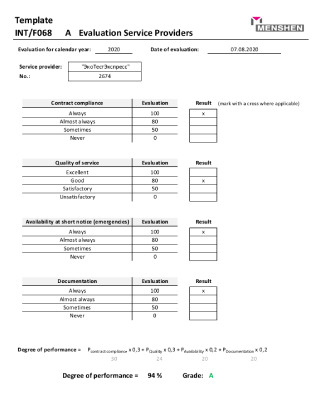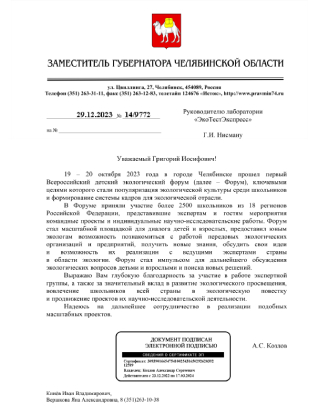- A path of fortune unfolds with each cautious move on the chicken road, where timing your exit proves crucial for maximizing gains.
- The Psychology Behind Risk in Gambling
- The Role of Emotion in Decision Making
- Know Your Limits
- Strategic Approaches to Maximizing Gains
- The Importance of Bankroll Management
- The Role of Timing in Gambling Decisions
- Common Traps and How to Avoid Them
- Recognizing Signs of Problem Gambling
- A Support Network Can Help
- Conclusion
A path of fortune unfolds with each cautious move on the chicken road, where timing your exit proves crucial for maximizing gains.
The gambling world is an intricate dance of chance and strategy, where players navigate through a labyrinth of choices, each decision echoing with potential rewards or unforeseen consequences. The concept of the chicken road is an apt metaphor in this context, embodying a path filled with enticing gains that rise with every step, yet laden with traps that can derail even the most seasoned players. It symbolizes the journey of a gambler as they tread carefully on a road of increasing stakes, where the thrill intensifies with every decision made. Understanding this paradigm not only adds excitement to the experience but also equips players with the necessary forethought to navigate their ambitions adeptly.
As players move down this treacherous path, the key to success lies in recognizing when to continue forward in pursuit of greater rewards and when to pull back to avoid potential losses. Each step taken is imbued with the promise of increased chips or gains, enticing individuals to commit further as the tension builds. In this article, we will delve into the dynamics of the chicken road, exploring strategies, risks, and the essential element of timing that define the gambling experience.
The subjective nature of risk and reward plays a pivotal role, making it imperative for players to cultivate a keen understanding of their own limits. Knowing when to stop can be the difference between a triumphant haul and a devastating loss. By highlighting key strategies and potential pitfalls along the way, we will illuminate how players can maximize their gains while mitigating risks, creating a balanced approach to betting that serves them well in various gambling environments.
Join us as we embark on this exciting journey along the chicken road, where calculated risks lead to fabulous rewards, but only for those who can master the fine art of restraint.
The Psychology Behind Risk in Gambling
Understanding the psychology of players is essential in comprehending the intricacies of the chicken road. Each individual brings a unique set of emotions, experiences, and motivations that influence their decisions while gambling. For many, the thrill of taking risks is intoxicating, often resulting in a gambler’s fallacy where players believe they can predict outcomes based on previous events. This mindset can either enhance the excitement of betting or lead players into dangerous territory where losses accumulate. In this context, it’s crucial to analyze both positive and negative psychological factors that affect gambling behavior.
Conversely, some players may approach betting with a more analytical mindset, taking into consideration odds, probability, and potential outcomes. This methodical approach often leads to better decision-making, helping players navigate the traps that the chicken road may present. However, even the most rational players can experience moments of weakness, where emotions cloud their judgment, resulting in impulsive decisions. Therefore, a solid understanding of psychological principles can be an invaluable weapon against the pitfalls of gambling.
| Optimism Bias | Leads players to underestimate risks and overestimate gains. |
| Loss Aversion | Causes players to hold onto losing bets longer than they should. |
| Chasing Losses | Increases the likelihood of making poor decisions while trying to recover losses. |
| Overconfidence | Can result in larger bets and taking unwarranted risks. |
The Role of Emotion in Decision Making
Emotions play a significant part in how we make decisions while gambling. euphoria, anxiety, and disappointment can create a rollercoaster of experiences, influencing choices on the chicken road. Understanding the interplay between emotions and decision-making can provide valuable insight into a player’s mindset. Euphoria can lead to reckless bets, while anxiety can trigger cautious behaviors that may limit potential gains. To achieve a balanced approach, players must find a way to manage their emotions and remain grounded during their journey.
A common emotional challenge is the pressure brought on by peers or the casino environment. Players may feel compelled to follow trends or mimic the actions of high-stakes gamblers, often leading them to stray from their strategy. Developing emotional intelligence is an essential aspect of gambling that allows players to recognize and regulate their feelings while navigating through the various traps of the chicken road.
Know Your Limits
Part of mastering the chicken road involves an acute awareness of personal limits—both financially and emotionally. Setting boundaries before starting to gamble can help mitigate risk and enhance the gaming experience. Players should take time to assess their current financial situation, emotional state, and appetite for risk, ensuring they enter the gambling environment with a clear strategy. Establishing winning and losing limits can safeguard against unplanned losses, keeping the experience enjoyable and, most importantly, responsible.
Knowing one’s limits also extends to recognizing when to disengage from gaming activities. While the allure of walking the chicken road with heightened stakes may be tempting, understanding that this journey is not about the quantity of wins but the quality of decision-making is crucial. Commit to walking away when thresholds are reached, embracing the excitement of gambling without becoming ensnared by it.
Strategic Approaches to Maximizing Gains
Adopting a strategic mindset is integral to successfully navigating the chicken road. Armed with the knowledge of psychology and self-awareness, players must carefully evaluate their betting strategies and tailor them to fit their risk appetite. One approach involves analyzing odds and probabilities associated with different games, which can provide insight into potential outcomes and influence decision-making effectively.
Furthermore, diversification is a fundamental strategy to consider. Just like in investments, spreading bets across a variety of games and opportunities can balance risk and reward, reducing the impact of losing streaks. By allocating chips wisely across multiple avenues, players can increase their chances of hitting valuable returns while minimizing exposure to any single bet’s risks.
- Evaluate Odds: Study the odds associated with each game to make informed bets.
- Diversify Bets: Spread risk across different games to minimize loss.
- Set a Budget: Determine the amount of money you are comfortable losing.
- Take Breaks: Regularly disengage to prevent emotional decision-making.
- Adjust Strategies: Be flexible in your approaches based on performance.
The Importance of Bankroll Management
Bankroll management is an essential yet often overlooked aspect of successfully navigating the chicken road. Establishing a clear budget for gambling activities can help players track their expenses and winnings, ensuring they maintain a healthy balance. Players should design their bankroll strategy to accommodate both regular gaming sessions and potential winning opportunities, emphasizing discipline over recklessness.
A good practice includes categorizing funds based on leisure and risk levels. Allocating certain amounts specifically for riskier bets while reserving the bulk of the budget for safer choices can mitigate losses while maintaining room for adventure. The central tenet of bankroll management is creating a structure that fosters long-term engagement without compromising personal finances.
The Role of Timing in Gambling Decisions
In the realm of gambling, timing can make all the difference. Players must recognize the fleeting nature of opportunities and learn to act decisively when the conditions align favorably. The concept of “timing your exit” becomes paramount as players progress along the chicken road. Knowing when to cash out or to hold on for greater stakes is often a blend of intuition and analytical prowess.
To enhance timing skills, players can benefit from journaling their betting journey. Recording touches on strategies, emotions, and outcomes allows players to recognize patterns over time, identifying the moments that led to success or failure. Analyzing these records can empower future decisions, helping players to tune into their instincts regarding optimal timing when navigating through the twists and turns of the chicken road.
Common Traps and How to Avoid Them
Every path has its pitfalls, and the chicken road is no exception. Players must be wary of common traps that can lead to poor decision-making and substantial losses. Identification and mitigation of these pitfalls call for vigilance and self-awareness. One primary trap players encounter is the allure of high-stakes gambling, where the bright lights and excitement can mask the risks involved.
To avoid these traps, players should educate themselves about the odds and mechanics of each game they choose to engage with. Whether it’s understanding the house edge in casino games or evaluating the dynamics of poker hands, awareness creates an informed approach amidst the fast-paced environment of gambling. Additionally, developing a personal strategy and sticking to it can be a potent shield against emotional decisions often bred by enticing betting environments.
- Identify Traps: Recognize the common pitfalls of gambling.
- Educate Yourself: Know the rules and strategies before engaging.
- Stick to Your Strategy: Develop and adhere to a personal gaming strategy.
- Avoid Impulsive Decisions: Take breaks to maintain clear thinking.
Recognizing Signs of Problem Gambling
A critical aspect of navigating the chicken road involves recognizing the signs of potential problem gambling. Numerous indicators can signal when a player has crossed the line from responsible enjoyment to unhealthy gambling patterns. Symptoms may include preoccupation with gambling, increasing betting amounts, and using gambling as an escape from reality.
Awareness of these red flags empowers individuals to address their behavior early, which can facilitate healthy gaming habits. Seeking support from friends, family, or professional organizations can provide vital resources and companionship on the road back to responsible gambling.
A Support Network Can Help
Having a support network can play a pivotal role in the gambling journey. Friends and family who understand the nuances of gambling can provide essential encouragement during tough times, helping players make informed decisions along the chicken road. Sharing experiences with like-minded individuals or participating in gaming support groups can also foster strong connections built on shared challenges and victories.
The importance of community cannot be overstated; those who support individuals on their gambling journey can help mitigate risks and reinforce responsible behaviors. Whether it’s through casual conversations about gaming strategies or formal discussions about risk management, building a trustworthy community enhances the potential for success along the adventurous path of gaining riches.
Conclusion
In the end, navigating the chicken road is a delicate balance between risk and reward, a thrilling venture where the potential for fortune corresponds with emotional stability and strategic acumen. Acknowledging psychological influences, managing bankrolls, timing exits well, and recognizing pitfalls creates a holistic approach to gambling that can optimize rewards while minimizing losses. Players must embrace the journey with prudence, always reminding themselves that on the chicken road, the skill lies not only in winning but knowing when to exit. Ultimately, true fortune favors those who walk the path with intention.



















